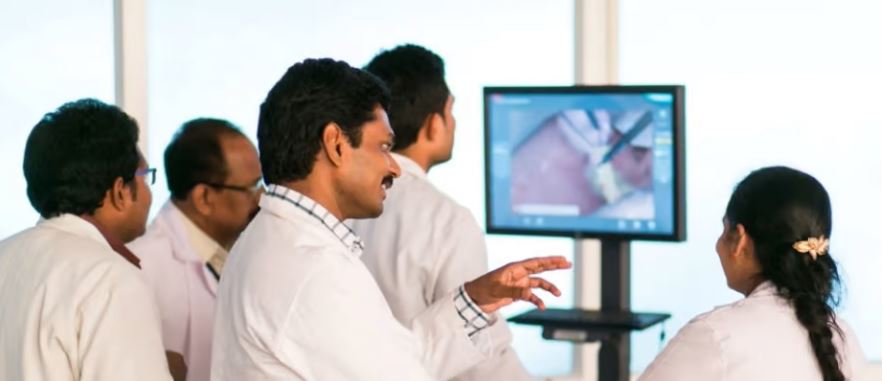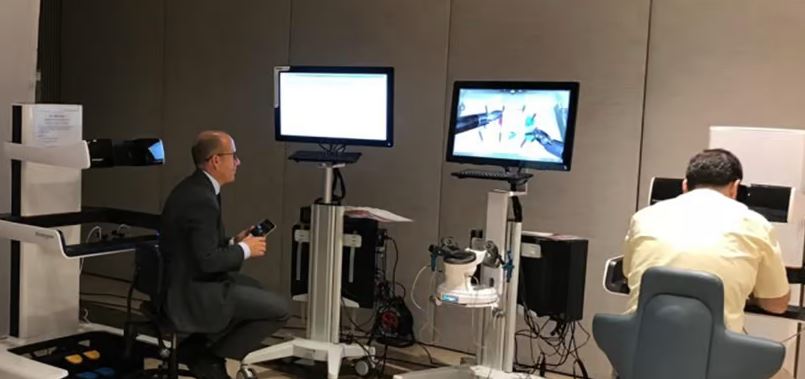下载PDF
Better Together
技术
- 功能应用 - 企业资源规划系统 (ERP)
- 分析与建模 - 预测分析
适用行业
- 教育
适用功能
- 商业运营
服务
- 系统集成
- 软件设计与工程服务
挑战
Brown University needed to unify information confined in multiple, dissimilar systems. The University relied on many manual financial processes and its data was stored across several systems, further reducing efficiency. Brown University was in need of a Financial Management software that goes beyond the basics of accounting and would focus on speed, cost, agility, and strategic insights. The Ivy League school struggled with a limited number of finance and accounting capabilities, delayed business insights, and managing business assets. Brown University wanted a full range of Financial and Accounting capabilities in a cloud-based application.
关于客户
Located in historic Providence, Rhode Island and founded in 1764, Brown University is the seventh-oldest college in the United States. The University has a student population of more than 8,000 and 5,100 faculty members. At its foundation, Brown was the first college in the United States to accept students regardless of their religious affiliation. The Ivy League’s engineering program, established in 1847, was the first in what is now known as the Ivy League. Brown’s New Curriculum, adopted by faculty vote in 1969, eliminated mandatory “general education” distribution requirements, made students “the architects of their own syllabus,” and allowed them to take any course for a grade of satisfactory or unrecorded no-credit.
解决方案
Collaborative Solutions partnered with Workday on this multiphase project to deploy the full suite of Workday Financial Management. In Phase 1, Collaborative Solutions led efforts on Financial Accounting, Banking and Settlements, Assets, Projects, Expenses, and assisted Workday on Procurement and Supplier Accounts. This went live after 12 months in July 2013. Phase 2 included Customer Accounts, Project Capitalization, Moveable Equipment and Assets, and went live in a staggered 12 month deployment in July 2014.
运营影响
数量效益
相关案例.

Case Study
IoT platform Enables Safety Solutions for U.S. School Districts
Designed to alert drivers when schoolchildren are present, especially in low-visibility conditions, school-zone flasher signals are typically updated manually at each school. The switching is based on the school calendar and manually changed when an unexpected early dismissal occurs, as in the case of a weather-event altering the normal schedule. The process to reprogram the flashers requires a significant effort by school district personnel to implement due to the large number of warning flashers installed across an entire school district.

Case Study
Revolutionizing Medical Training in India: GSL Smart Lab and the LAP Mentor
The GSL SMART Lab, a collective effort of the GSL College of Medicine and the GSL College of Nursing and Health Science, was facing a challenge in providing superior training to healthcare professionals. As clinical medicine was becoming more focused on patient safety and quality of care, the need for medical simulation to bridge the educational gap between the classroom and the clinical environment was becoming increasingly apparent. Dr. Sandeep Ganni, the director of the GSL SMART Lab, envisioned a world-class surgical and medical training center where physicians and healthcare professionals could learn skills through simulation training. He was looking for different simulators for different specialties to provide both basic and advanced simulation training. For laparoscopic surgery, he was interested in a high fidelity simulator that could provide basic surgical and suturing skills training for international accreditation as well as specific hands-on training in complex laparoscopic procedures for practicing physicians in India.

Case Study
Implementing Robotic Surgery Training Simulator for Enhanced Surgical Proficiency
Fundacio Puigvert, a leading European medical center specializing in Urology, Nephrology, and Andrology, faced a significant challenge in training its surgical residents. The institution recognized the need for a more standardized and comprehensive training curriculum, particularly in the area of robotic surgery. The challenge was underscored by two independent studies showing that less than 5% of residents in Italian and German residency programs could perform major or complex procedures by the end of their residency. The institution sought to establish a virtual reality simulation lab that would include endourological, laparoscopic, and robotic platforms. However, they needed a simulator that could replicate both the hardware and software of the robotic Da Vinci console used in the operating room, without being connected to the actual physical console. They also required a system that could provide both basic and advanced simulation training, and a metrics system to assess the proficiency of the trainees before they performed surgical procedures in the operating theater.

Case Study
Edinburgh Napier University streamlines long-distance learning with Cisco WebEX
• Geographically dispersed campus made in-person meetings costly and inconvenient.• Distance-learning programs in Malaysia, India, and China required dependable, user-friendly online tools to maximize interaction in collaborative workspaces.• Virtual learning environment required a separate sign-in process, resulting in a significant administrative burden for IT staff and limited adoption of collaboration technology.

Case Study
8x increased productivity with VKS
Before VKS, a teacher would spend a lot of time showing a group of 22 students how to build a set of stairs within a semester of 120 hours. Along with not leaving the teacher much time to provide one-on-one support for each student to properly learn carpentry, it also left a considerable amount of room for error. Key information would be misinterpreted or lost as the class was taught in the typical show-and-tell way.

Case Study
Scalable IoT Empowering GreenFlex's Sustainable Growth
GreenFlex, a company that supports sustainable development, decarbonization, and energy efficiency, faced several challenges in its quest to expand its business. The company needed to deploy a robust and sustainable IoT technology to support its growth. It was crucial for them to monitor and control devices at customer sites in a safe and reliable manner. They also needed to integrate devices across a range of communication protocols and gather and act on data to meet efficiency targets. GreenFlex had previously built IoT capabilities into its digital platform, GreenFlexIQ, to monitor and manage customer sites remotely. However, they soon realized that they needed a new platform to support their ambitions. They needed a platform that could scale to connect more devices for production management and make it easier for the operations team to manage devices in the field.




